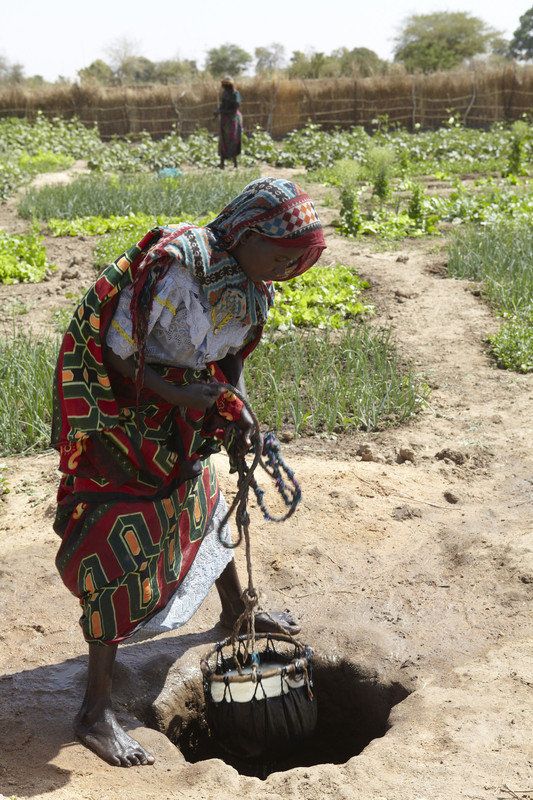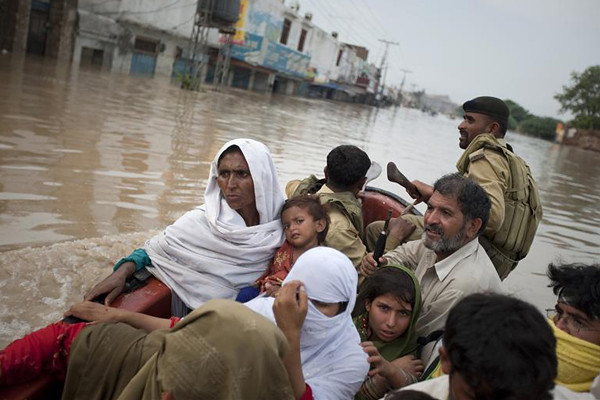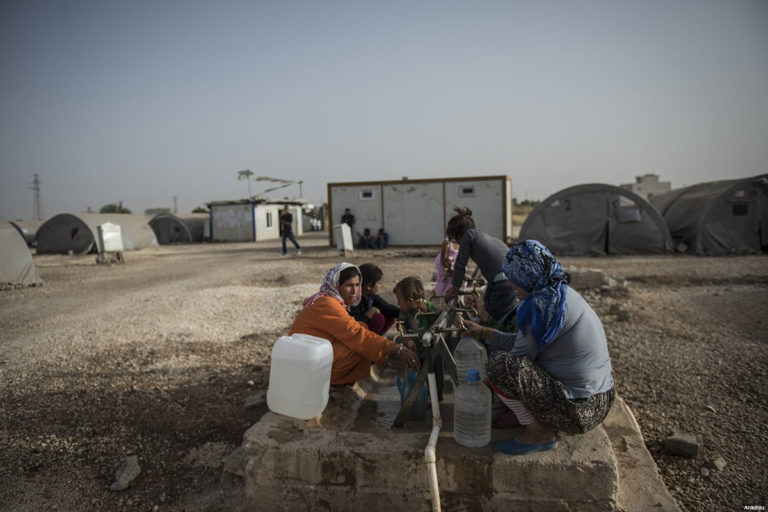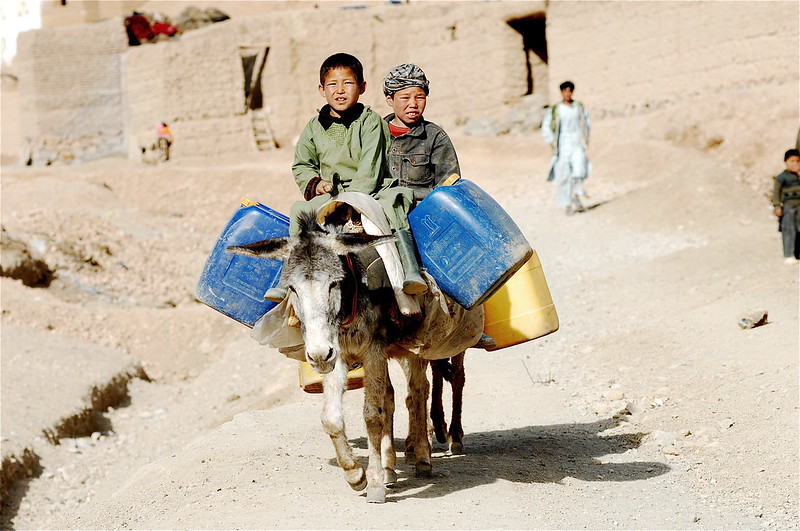This is the inaugural edition of the Ecological Threat Register (ETR), which covers 157 independent states and territories. The ETR measures ecological threats that countries are currently facing and provides projections to 2050. The ETR analyses population growth, water stress, food insecurity, droughts, floods, cyclones, rising temperatures and sea levels. The ETR is unique in that it combines measures of resilience with the most comprehensive ecological data available to shed light on the countries least likely to cope with extreme ecological shocks, now and into the future.
Key Results
- 19 countries with the highest number of ecological threats are among the world’s 40 least peaceful countries including Afghanistan, Syria, Iraq, Chad, India and Pakistan.
- Over one billion people live in 31 countries where the country’s resilience is unlikely to sufficiently withstand the impact of ecological events by 2050, contributing to mass population displacement.
- Sub-Saharan Africa, South Asia, the Middle East and North Africa are the regions facing the largest number of ecological threats.
- By 2040, a total of 5.4 billion people – more than half of the world’s projected population – will live in the 59 countries experiencing high or extreme water stress, including India and China.
- 5 billion people could suffer from food insecurity by 2050; which is an increase of 1.5 billion people from today.
- The lack of resilience in countries covered in the ETR will lead to worsening food insecurity and competition over resources, increasing civil unrest and mass displacement, exposing developed countries to increased influxes of refugees.

Ecological Threat Register
At this moment, one hundred and forty-one countries are exposed to at least one ecological threat. However, the ETR report reveals that 6.4 billion people currently live in countries which are exposed to medium to high ecological threats. Of those with the highest exposure to ecological shocks, 16 countries are currently facing four ecological threats, Mozambique and Namibia are each facing five threats and Afghanistan is facing the most threats with six.
Of the 157 countries covered in the ETR, 34% will face catastrophic water stress and 22% face catastrophic food insecurity by 2050. As a result, there will be substantial displacement of people or a substantial increase in undernourishment.
Resource Scarcity, Peace and Conflict
By 2050, the global population is projected to reach ten billion, with 80% of the world’s population living in countries which are in the bottom half of the Global Peace Index rankings. The ETR estimates indicate that the global demand for food will increase by 50% by that time.
Currently, two billion people face moderate to severe food insecurity. However, this figure is expected to increase to 3.5 billion people by 2050. Today, a further 822 million people are suffering from undernutrition, yet, by 2050, this figure is predicted to increase by 32% or 260 million people from 2018 levels.
Furthermore, it is estimated that the combined effects of rising temperatures, population growth and increased rainfall variability are likely to reduce the water supply in many countries. At this time, more than 2.6 billion people are living in the 46 countries currently experiencing high or extreme water stress. However, by 2040, a total of 5.4 billion people – or more than half of the world’s projected population – will live in the 59 countries experiencing high or extreme water stress.

Natural Disasters
Globally, the frequency of natural disasters has increased ten-fold since 1960 – increasing from 39 incidents in 1960 to 396 in 2019. From 1990 to 2019, a total of 9,924 natural disasters occurred globally, of which 42% were floods. In 2019, natural disasters displaced 25 million people – which was three times higher than the 8.6 million displaced by armed conflict. However, at current rates, 1.2 billion people could be displaced globally by 2050 due to natural disasters and armed conflict.
Related Articles: The Climate-Conflict Connection | Climate Change and Human Conflict | Migration, Conflicts and Climate Change
Positive Peace, Resilience and Ecological Threats
One billion people live in areas that combine high frequency and intensity of natural disasters with low and stagnant levels of Positive Peace. Countries with lower socio-economic development are exposed to more environmental threats than high development countries and have on average the least capacity to handle such shocks. As a result, the world’s least resilient countries, when faced with ecological breakdowns, are more likely to experience civil unrest, political instability, social fragmentation and economic collapse. However, ecological and humanitarian crises often spill over across international borders, increasing the likelihood of civil unrest and political instability in adjacent countries.
Resilience and Development Assistance
Foreign aid classified as climate-related aid has increased 34-fold from one billion US dollars in 2000 to US $34 billion in 2018. As a result, climate-related aid accounted for 29% of total development assistance in 2017 – with 49% of aid in this area being allocated to mitigation and 24% allocated towards adaptation-related programs. However, projects of priority for development assistance aim to address water scarcity, improve food security and promote general environmental protection.

The ETR report finds that ecological threats and climate change pose serious challenges to global development and peacefulness. Currently, more than one billion people live in countries that are unlikely to have the ability to mitigate and adapt to new ecological threats. However, the adverse impacts of ecological threats and climate change, will disproportionately affect the world’s poorest and most vulnerable and create spillover pressures on neighbouring countries through mass movements of people.
The report recommends that to reduce the impact of future ecological shocks, it is important to increase the levels of resilience in the most vulnerable countries. This will enable countries to be better prepared for shocks, but also to have stronger capabilities to deal with the after-effects of these shocks.
High resilience regions, such as Europe and North America, have superior coping capacities to mitigate the effects of these ecological threats, but they will not be immune from large flows of refugees. Building resilience to ecological threats will increasingly become more important and will require substantial investment today.
Editor’s Note: The opinions expressed here by Impakter.com columnists are their own, not those of Impakter.com.
In the Featured Photo: Two boys in Afghanistan take the journey to the well for water. Featured Photo Credit: Afghanistan Matters, Iain Cochrane.











